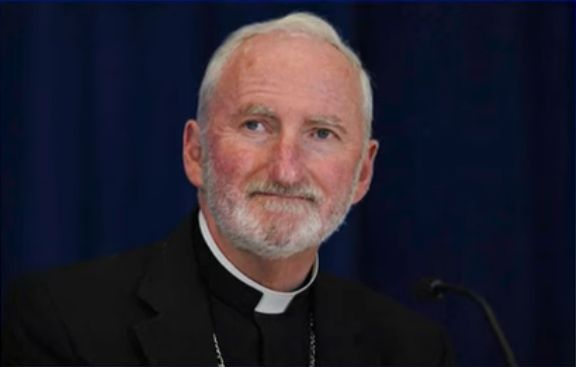New study suggests rampant ‘cafeteria Catholicism’

 null / Credit: Shutterstock
null / Credit: Shutterstock Washington, D.C. Newsroom, May 6, 2024 / 18:37 pm (CNA).
Ryan Burge, a leading researcher on religion and politics, recently compiled data indicating that “cafeteria Catholicism” is rampant in the United States. Specifically, the country’s Catholics express widespread disagreement with the Church’s teaching on abortion, euthanasia, and the death penalty.
The term “cafeteria Catholic” refers to a Catholic who picks and chooses which Church teachings he or she affirms and adheres to. Washington, D.C., Cardinal Wilton Gregory recently used the term to describe President Joe Biden, who as president has advocated for unrestricted abortion through all nine months of pregnancy.
Burge found that only 0.9% of Catholics agree with Church teaching on all three of the issues. His conclusions were based on 2022 data collected by the Global Social Survey (GSS) and compiled by the Association of Religion Data Archives (ARDA). Burge told CNA that the 0.9% number is an all-time low since GSS started collecting data in 1972.
“It’s not just many Catholics who disagree with the teachings of the Church — in fact, if you look at the data, it’s nearly all of them,” said Burge, who teaches political science at Eastern Illinois University.
This coincides with an overall 12% decline in Church attendance among Catholics over the last two decades, as found by Gallup.
Abortion
Despite the Catholic Church’s clear teaching that abortion is gravely immoral, Burge said, there is “clear majority support for elective abortion in almost every circumstance.”
Over 50% of Catholics support abortion when the mother’s health is at risk, the child is the result of rape, if there is a “strong chance of serious defect in the baby,” and when the family or mother either does not want or cannot support another child.
Nearly 90% of Catholics support abortion in such cases in which the mother’s health is at risk. Over 80% of Catholics support abortion in cases of rape, and close to 80% of Catholics support abortion for serious defects.
ARDA also reports that 17.7% of Catholics believe abortion should be illegal in all cases.
Euthanasia
Regarding euthanasia, which the Church teaches is morally unacceptable, and suicide, which the Catechism of the Catholic Church calls “contrary to love for the living God,” most Catholics again are not in agreement with the Church’s teaching.
According to the data, 70% of Catholics support euthanasia, defined in the survey as a person’s ability to commit suicide in the case of an incurable disease. As pointed out by Burge, Catholics’ support for euthanasia and assisted suicide has been growing since the 1980s.
Death penalty
In recent decades, the Church has been increasingly voicing its opposition to the death penalty. In 2018, the Catechism of the Catholic Church was revised to reflect that opposition.
The catechism acknowledges that in the past “recourse to the death penalty on the part of legitimate authority, following a fair trial, was long considered an appropriate response to the gravity of certain crimes and an acceptable, albeit extreme, means of safeguarding the common good.”
“Today, however, there is an increasing awareness that the dignity of the person is not lost even after the commission of very serious crimes. In addition, a new understanding has emerged of the significance of penal sanctions imposed by the state. Lastly, more effective systems of detention have been developed, which ensure the due protection of citizens but, at the same time, do not definitively deprive the guilty of the possibility of redemption,” the catechism indicates.
The catechism goes on to quote Pope Francis in stating that “the death penalty is inadmissible because it is an attack on the inviolability and dignity of the person.”
Despite this, ARDA found that 61% of Catholics are in favor of the death penalty for convicted murderers. Support for the death penalty among Catholics has waned in recent decades after reaching a high of 81% in 1990.
‘A lot of work to do’
Monsignor Charles Pope, a Catholic author and pastor of Holy Comforter-Saint Cyprian Church in the Archdiocese of Washington, told CNA that the 0.9% number does not accurately represent Catholics’ “buy-in” to the faith.
Pope called the study “very unfair” and said it is “bringing things together which need to be analyzed separately.” He pointed out that the Church is clear in its teaching that abortion is intrinsically evil, while there is more leeway when it comes to the death penalty, which he described as a “prudential” rather than a “doctrinal” matter.
He agreed, however, that there is still a disconnect between Church teaching and what many Catholics believe. This, he thinks, is due to what he called “the politicization of moral issues.”
“Politics, sadly, is driving the conversation more than faith, because we are very worldly in our outlook,” he said. “So, if there’s one positive thing to take from this study it’s that we certainly have a lot of work to do to convince our own faithful of our teachings.”
“We’ve got a lot of work to do, but it doesn’t mean our teachings are wrong,” he went on. “It’s not the job of the Church to reflect the public opinion polls of our people, it’s the job of the Church to say: ‘Here’’s what Jesus says.’”



